Discover The Third Story with Leo Sidran
The Third Story with Leo Sidran

The Third Story with Leo Sidran
Author: Leo Sidran
Subscribed: 215Played: 6,247Subscribe
Share
© Unlimited Media, Ltd.
Description
THE THIRD STORY features long-form interviews with creative people of all types, hosted by musician Leo Sidran. Their stories of discovery, loss, ambition, identity, risk, and reward are deeply moving and compelling for all of us as we embark on our own creative journeys.
324 Episodes
Reverse
Pianist, songwriter, and performer Jacob Jeffries the morning after he played Madison Square Garden with Vulfpeck, reflecting on the surreal thrill of performing in the legendary arena with his close friends, while also grounding the experience in the everyday reality of being a working musician. The conversation traces his journey from South Florida (where his childhood was shaped by Beatles records, summer theater programs like Lovewell, and the absence of a bar mitzvah he later regretted) to his early career with the Jacob Jeffries Band and formative studio experiences with Grammy-winning producer Sebastian Krys and guitarist-producer Dan Warner. He describes being taken under their wing, signed to Warner Chappell at 18, and even meeting Rick Rubin as a teenager—moments that felt like he was “six inches from Madison Square Garden,” only to discover it would take another 20 years of steady work to get there. Along the way, Jeffries talks about grief (losing both parents by his mid-20s), his bond with fellow Vulfpeck member Theo Katzman, the power of collaborative creativity, and the balance between sincerity and playfulness in his own music. He reflects on the intimacy of his new record You Got the Right Idea, the surreal humor of songs like This Is Not the Song I Wrote, and how he embodies a kind of singer, storyteller, and surrealist performer all at once. Jacob is on tour this month opening for the band Lawrence. www.third-story.com www.leosidran.substack.com www.wbgo.org/podcast/the-third-story
Born and raised in Madrid, Leonor Watling grew up between cultures, the daughter of a Spanish academic father and a British mother who had been raised in Africa. From an early age she was aware of both the fragility and the richness of life: her father was sick for much of her childhood and passed away when she a teenager, just as she began working steadily as an actress. That combination of otherness and awareness shaped her perspective, both on stage and in song. Best known internationally for her starring role in Pedro Almodóvar’s Talk to Her, she is one of the most recognizable faces in Spanish cinema, constantly at work in new films and series. Watling has also built a parallel career as a musician. For nearly two decades she fronted the band Marlango, releasing seven albums and touring the world, first singing in English and later in Spanish. In this conversation, recorded in Madrid, Leonor reflects on her journey from early television fame to international cinema, from intimate songwriting to major-label tours, and from the demands of motherhood to the challenges of sustaining a creative life. We also unpack our own collaboration, Leo & Leo, a new project that reimagines songs from the Leo Sidran song catalog alongside new originals, featuring guests Jorge Drexler, Kevin Johansen, Sol Sidran, Javi Peña, and the Paris based Groovy French Band. At its heart, this is both a portrait of an artist who has spent decades walking the line between acting and music, fame and privacy, English and Spanish—and a rare, intimate conversation between two close collaborators who are still discovering new ways to ask questions of each other. www.third-story.com www.leosidran.substack.com
Stella Cole went from nearly giving up singing in college to becoming one of the breakout stars of the pandemic era, thanks to her viral performances of American Songbook standards on TikTok. Now signed to Decca and releasing her second full length album It’s Magic, she talks about following her instincts, finding her voice, and turning childhood obsessions into a career. www.third-story.com www.leosidran.substack.com www.wbgo.org/podcast/the-third-story
Every year on his birthday, my dad and I sit down for a conversation. It started when he turned 76, and with a few exceptions, we’ve done it ever since - capturing an ongoing record of where his head and heart are at that particular moment. Over the years we’ve talked about music, memory, politics, travel, the craft of performing, and the art of living. These annual conversations have become a kind of time-lapse portrait: the same two people returning to the mic, but always a little changed. This year, as Ben turns 82, the theme that emerges is that he is “still auditioning for the role of myself.” We talk about what it means to keep creating, to stay curious, and to hold on to your sense of fun as the outside world speeds up and your personal world contracts. Ben is, as always, the consummate jazz philosopher. “History is what we make of it and what we live every day,” he tells me. “We’re all feeling pain, and you can’t deny it. [...] But the response to pain is something separate from the pain itself. And in that distance between the pain and the response to pain is where our work is.” He shares stories from his days hosting NPR’s Jazz Alive and later Sidran on Record, explains how he came to be the first person to record Billy Joel’s “New York State Of Mind,” reflects on maintaining the outsider’s perspective, and weighs in on the latest curveball: AI-generated music. If you’ve been following this series of birthday talks, then this is a great addition to the canon. If this is your first one, welcome - you’re dropping into the middle of a conversation that’s been going on for years, and will, I hope, keep going for many more. Ben’s most recent album Are We There Yet (Live at the Sunside) was released earlier this summer. www.leosidran.substack.com www.third-story.com www.wbgo.org/studios www.bensidran.com
In 2018, film editor, producer, writer, and director Mary Sweeney sat down for a wide-ranging conversation about her career — from growing up in Madison, Wisconsin, to collaborating with one of the most visionary directors of our time, David Lynch. That conversation traced her evolution as an artist, her pivotal role in shaping films like Lost Highway, The Straight Story, and Mulholland Drive, and the intimate creative and personal relationship she shared with Lynch. Seven years later, in the wake of Lynch’s death in early 2025, Sweeney returns for a follow-up conversation, recorded in a Paris hotel room nearly to the day of the original talk. While she has grown and evolved in the intervening years, she is also, unmistakably, in the process of mourning. This new conversation captures a deeply human moment: a woman navigating the complexities of grief, memory, and creative identity after the loss of a longtime collaborator and partner. Sweeney reflects not only on the legacy of her work with Lynch, but also on her ongoing life as an artist, mentor, and teacher. She speaks candidly about the challenge of being defined by a past she helped create, even as she seeks to shape new stories. There’s a tension between wanting to move forward and being drawn back to moments that shaped her — and a palpable vulnerability in her willingness to explore that contradiction publicly. Paris itself plays a quiet role in the conversation — a place of reflection and ritual that has become part of Sweeney’s life in recent years. The setting adds to the emotional texture of the interview: past and present gently overlapping in a city known for memory and reinvention. If the first conversation served as a kind of time capsule — a snapshot of a creative life at a particular moment — this follow-up serves as both an epilogue and a revision. It expands the story, complicates it, and deepens it. In the language of film, it might be called a director’s cut: longer, more revealing, more personal. Ultimately, this episode is about how stories are shaped, reshaped, and sometimes reclaimed. About how we carry our experiences forward. And about how, even in the face of loss, we find ways to keep creating — and keep becoming. www.third-story.com www.leosidran.substack.com www.wbgo.org/podcast/the-third-story
Moses Patrou has spent the past twenty-five years in New York, carving out a unique space as a multi-instrumentalist and bandleader. From early days in Madison, Wisconsin playing hand drums in hip hop bands, to immersing himself in Cuban and Brazilian traditions, to gigging across the city in every imaginable context, Patrou has done it all. During the pandemic, he taught himself to play organ—a transformation that has reshaped his sound and his role in the scene. Here he reflects on the long road behind his new record Confession of a Fool - a soulful and striking record that represents the culmination of a lifetime in music - and what it means to make a defining statement at midlife. Patrou talks about the house fire that nearly took everything, the influence of his father (a piano player who named him after Mose Allison), and the difference between being a sideman and stepping into the spotlight. “There’s a certain point where the music has to come through your experience,” he says. “It has to filter through your life.” Today, on the ocassion of the 300th episode of The Third Story, there is no better person to talk to than Moses Patrou. www.third-story.comwww.leosidran.substack.com www.wbgo.org/podcast/the-third-story
For Joe Henry, truth in songwriting doesn’t come from confession or fact. It comes from presence, from listening, from surrender, from giving shape to the ineffable. As he puts it: “Total presence—that is the code of my road.” Henry’s road has taken him across both the literal and metaphorical map of American music. Born in North Carolina, raised in Georgia and Ohio, and coming of age in Ann Arbor, Michigan, he grew up suspended between North and South, white and Black, rural and urban. This early sense of duality, of living between poles, helped shape his identity and fed a lifelong curiosity. Alongside his brother Dave, he immersed himself in records, films, and books that would later form the bedrock of his creative work. Over the past four decades, Henry has become one of the most respected songwriters and producers in American music. His solo albums, beginning in the late 1980s, blend literary songwriting with genre-bending arrangements. As a producer, he’s worked with artists like Allen Toussaint, Mavis Staples, Solomon Burke, Bonnie Raitt, Rodney Crowell, Joan Baez, and Meshell Ndegeocello. He co-wrote Madonna’s hit “Don’t Tell Me,” (she also happens to be his sister in law) and more recently, he’s been collaborating with Jon Batiste. This year he is releasing three of his classic albums on vinyl for the first time. In this wide-ranging conversation, Henry discusses his love of character-driven songwriting—an approach influenced early on by Randy Newman and Bob Dylan—and his rejection of the notion that autobiography equals authenticity. “Your factual experience can be disruptive to the truth you're trying to allow to move through you,” he says. www.third-story.com www.leosidran.substack.com www.wbgo.org/podcast/the-third-story
Aron! is only 22, but his music seems to exist outside of time. A singer, songwriter, and multi-instrumentalist from North Carolina, he studied classical guitar, jazz voice, and film scoring—playing everything from indie rock in a college band to Nat King Cole covers in retirement homes—before landing on a sound that feels both old school and strikingly fresh. (He calls his sound “vintage pop”.) His debut EP cozy you (and other nice songs) began as a self-produced student project, recorded in a college studio with friends. It was completed before he signed with Verve Records—one of the most iconic jazz labels in the world—and showcases his gift for timeless songwriting, intimate performance, and warm, sophisticated arrangements. He first gained attention online through casual videos of himself playing standards and originals, quietly amassing a loyal audience. Among his early champions was Ryan Lerman (Scary Pockets), who helped connect Aron! with a wider musical community. Here he reflects on his musical roots, his love of old songs, the strange path from Instagram to Verve, and the challenge of staying grounded in a moment of rapid change. The songs may sound old, but the feeling is immediate. The muse, it seems, doesn’t care what year it is. www.third-story.com www.leosidran.substack.com www.wbgo.org/podcast/the-third-story
Over the past two decades, Natalia Lafourcade has evolved from alt-pop prodigy to one of the most revered voices in Latin American music. With 15 Latin Grammys and 4 Grammys to her name, she’s known for blending contemporary expression with deep cultural roots. Her latest album, Cancionera, is a bold new statement—a stripped-down, emotionally direct record that draws on her Veracruz heritage, the son jarocho tradition, and a mystical alter ego she calls La Cancionera. In this conversation, Natalia reflects on the power of presence, the value of silence, and her decision to perform much of her new music solo on tour. She talks about the “theater of the song,” where voice and guitar take center stage, and about her ongoing effort to honor tradition while contributing something new. She also speaks candidly about recording live with 18 musicians, working again with producer Adan Jodorowsky, and bringing this music to audiences around the world at a time of division and border politics. Without preaching, she offers a quiet but powerful vision of connection, compassion, and cultural memory—through song. www.third-story.com www.leosidran.substack.com www.wbgo.org/podcast/the-third-story
Terri Lyne Carrington has spent her life behind the drums—and out in front. In this wide-ranging conversation, the Grammy-winning musician, educator, and activist reflects on her remarkable journey from child prodigy to visionary bandleader, and from mentee to mentor. She shares stories from her early gigs with jazz legends like Clark Terry and Buddy Rich, her formative years with Herbie Hancock and Wayne Shorter, and her ongoing work shaping the next generation through the Berklee Institute of Jazz and Gender Justice. We spoke on the occasion of We Insist 2025!, Carrington’s powerful new reimagining of Max Roach’s classic 1960 protest suite. But the conversation goes far beyond the music—it’s about legacy, leadership, gender equity, and the responsibility of artists to help create a more just and expansive world. As Carrington puts it, “Only an open hand receives.” www.third-story.com www.leosidran.substack.com www.wbgo.org/podcast/the-third-story
pablopablo - born Pablo Drexler - is a Madrid-based singer, songwriter, and producer. The son of two acclaimed artists, Jorge Drexler and Ana Laan, here he talks about how he found his own voice, sound, and artistic identity. His debut full-length album, Canciones en mi, is out now. The title is a bilingual play on words—“in E” (as in the musical key), and “in me”—and it perfectly captures the spirit of the record: introspective, expressive, and sonically bold. Pablo shares the story of growing up in a small town outside Madrid with a big, multilingual worldview. We discuss his early experiments in music and production, his years studying abroad, and his time touring and collaborating with artists like C. Tangana. He opens up about stepping away from the Drexler name—on the advice of his father—to make space for his music to be heard on its own terms. We dive deep into questions of identity, language, and legacy: Why does he now write exclusively in Spanish? What does it mean to create a sound that feels personal without being confessional? How do you balance the instinct to innovate with the desire to stay grounded? Along the way, we talk about the emotional clarity that comes with pressure, the power of building a sonic world, and the beauty of embracing simple ideas and making them feel new. At just 27, Pablo Pablo is already a Latin Grammy-winning artist, having contributed to major collaborations with Jorge Drexler, C. Tangana, and Nathy Peluso. But Canciones en mi is his proper introduction as a solo artist—and it’s a striking one. This is a conversation about roots and branches, about staying true while branching out, and about what happens when you finally find the music that sounds like you. www.third-story.com www.leosidran.substack.com
Twenty years ago, “Al otro lado del río" became the first Spanish-language song to win an Academy Award for Best Original Song. Written by Jorge Drexler in a single day while staying in Madison, Wisconsin, and recorded in a mix of home and studio settings, the song’s journey was as unexpected as its lyrics suggested. At the time, it felt like an anomaly. This year, when “El Mal” from Amelia Perez won the same award, it barely registered as unusual. That alone says something about how much can shift in 20 years—culturally, personally, globally. Here we revisit that historic night through conversations with Jorge Drexler, Ana Laan, Amanda Sidran, Ben Sidran, and the song’s co-producer: me. From the song’s humble origins, its Oscar nomination, and the moment when Drexler—barred from performing his own song during the ceremony—made a quiet but profound statement by singing his acceptance speech a cappella. But this episode isn’t just about the song. It’s about the river crossings—literal and metaphorical—that define our lives. It’s about memory, and how we revise and re-tell our stories over time. It’s about fate, timing, music, and how small decisions can ripple outward in ways we could never expect. It also looks at the aftermath: how the win transformed Drexler’s career, leading to 15 Latin Grammys and three Song of the Year awards by 2024, and how it marked a turning point for me, prompting me to move to New York and ultimately leading to the creation of The Third Story podcast. But even in retelling the story, memory plays tricks—Jorge and I recall that night differently, highlighting a key theme of The Third Story: within every version of events, the truth always lies in the spaces between. This episode is an exploration of music, memory, and history—how a single event can reshape multiple lives in different ways. www.third-story.com www.leosidran.substack.com
Legendary singer-songwriter Suzanne Vega looks back at her remarkable career — and forward to her new album, Flying with Angels, her first collection of original songs in nearly a decade. From the moment she emerged in the 1980s with her self-titled debut and follow-up Solitude Standing, Vega has occupied a singular space in popular music. Known for her literate lyrics, calm delivery, and understated innovation, she became an unlikely pop star with songs like “Luka” — a devastating portrait of abuse — and “Tom’s Diner,” which began as an a cappella sketch and became a surprise dance hit, later used in the development of the MP3 format. Vega discusses how those early hits shaped her identity, and how she’s maintained a relationship with her past work while continuing to evolve as an artist. She shares stories behind her biggest songs, her longtime collaborations (including with producer and ex-husband Mitchell Froom), and her connection to a vibrant downtown New York songwriting community that included figures like Jack Hardy and Fast Folk magazine. She also reflects on the new material, including the haunting “Mariaupol,” inspired by the war in Ukraine, and “Rats,” inspired during the lockdown in New York. These songs mark a subtle shift for Vega: from her usual allegorical storytelling to more direct commentary and bearing witness to events in real time. Along the way, the conversation touches on Lou Reed, Leonard Cohen, Bob Dylan, motherhood, stagecraft, artistic responsibility, and the strange alchemy of simplicity and resonance. Vega shares anecdotes from her life on tour, her early performances (including a childhood appearance at Pete Seeger’s feet), and her unexpected intersections with technology and culture. www.third-story.com www.leosidran.substack.com www.wbgo.org/podcast/the-third-story
When Arturo O’Farrill was 19 years old, playing piano in a bar in upstate New York, he was spotted by Carla Bley—who promptly invited him to join her band. At the time, he was doing everything he could to distance himself from the legacy of his father, the legendary Cuban composer Chico O’Farrill. He avoided anything labeled “Latin” like his life depended on it. But as he tells it, the real turning point came when bassist Andy Gonzalez sat him down and played him the history of Afro Latin music. Arturo realized that the music he’d rejected might actually be his greatest treasure—and more complex and profound than he’d ever imagined. Since then, Arturo has built an extraordinary body of work as a composer, bandleader, educator, and activist. From founding the Afro Latin Jazz Orchestra to creating his nonprofit Belongo—now building a major cultural center in Harlem—he’s dedicated his life to music that carries meaning. Not just swing, but sting. “You can pretend that music is pretty noise,” he says, “or you can think it’s only to soothe. But I don’t believe that’s the purpose of art.” In our conversation, Arturo opens up about identity, legacy, faith, creativity, and the urgent role of art in a broken world. Sometimes a conversation doesn’t just explore a person’s life—it opens a window into their soul. This was one of those. www.third-story.com www.leosidran.substack.com www.wbgo.org/podcast/the-third-story
When he was five years old, Max Pollak had a moment. Sitting in front of a black-and-white television in suburban Vienna, he saw Fred Astaire tap dancing for the first time. “I was so spellbound by his elegance and his effortless swinging persona that I immediately decided I have to learn how to do that,” he remembers. He didn’t understand the cultural context or the language, but he knew that whatever was happening on that screen — the rhythm, the movement, the magic — was something he had to pursue. That moment sparked a lifelong journey that would take him from Austria to Harlem to Havana and back again. Here, Max Pollak tells the remarkable story of how he taught himself to dance in a place where no formal tap training existed. Early on, improvisation wasn’t just part of his style — it was the only way forward. That instinctive relationship with rhythm would become the foundation of his unique voice as an artist. At 14, Pollak met his first mentor: Carnell Lyons, a master tap dancer from Kansas City who had relocated to Europe during the civil rights era. Lyons had grown up alongside Charlie Parker and had performed with jazz legends. He passed on not only the technical language of tap, but a deep awareness of the art form’s Black American roots. That relationship shaped the way Max approached dance — not just as choreography, but as culture. After moving to New York, Max began studying drums and enrolled in Bobby Sanabria’s Afro-Cuban ensemble at The New School. It was there that he was asked the question that would redefine his artistic path: Do you want to tap dance to Cuban music — or do you want to tap dance Cuban music? Inspired by that challenge, Pollak dove into Afro-Cuban music, learning the language of clave and fusing it with tap, body percussion, and voice. The result was RumbaTap — a groundbreaking synthesis of traditions that bridges continents and cultures. When members of the legendary Los Muñequitos de Matanzas saw Max perform, they asked him to teach them. That moment affirmed the authenticity of his approach and led to collaborations in Cuba that brought him closer to the source of the music he had been drawn to for so long. Today, Max Pollak is widely recognized as one of the most innovative tap dancers in the world. His contributions to the language of tap, particularly in blending it with Afro-Cuban music and body percussion, have earned him international recognition — including the rare honor of having his image featured on a United States postage stamp. He’s also a vocalist, drummer, composer, and storyteller. This week, he celebrates the 25th anniversary of RumbaTap with a special performance at 92NY, featuring members of Los Muñequitos. This episode came together unexpectedly, sparked by a tip from bassist and composer Alexis Cuadrado, who sent me the press release for the 92NY concert. I reached out to Max for a short interview — and the conversation turned out to be so rich and wide-ranging that I decided to share it in full. We talk about lineage, improvisation, spirituality, and what happens when you follow the rhythm only you can hear. www.third-story.com www.leosidran.substack.com www.wbgo.org/podcast/the-third-story
Self-proclaimed “badass and blind” singer, songwriter, guitarist Raul Midón in an expansive and deeply personal conversation about music, identity, independence, and the art of seeing clearly without sight. From his childhood fascination with radio and jazz in a small New Mexico town to his breakout moment in New York with legendary producer Arif Mardin, Midón shares the story of how he forged his unique artistic path. Blind since infancy, Midón has navigated life and a career with extraordinary intention and vision. He discusses the development of his signature sound — a percussive, virtuosic guitar style combined with his soulful voice and signature trumpet-like vocal improvisation — as well as his time as a session singer, his decision to pursue a solo career, and his commitment to self-producing and engineering his own records. Here he also touches on his political awareness, his reflections on artistry and authenticity, and the spiritual and philosophical dimensions of making music. Whether he's performing solo or recording in his Maryland home studio, Midón offers a masterclass in independence, self-expression, and the power of knowing — and trusting — yourself. www.third-story.comwww.leosidran.substack.com www.wbgo.org/podcast/the-third-story
Songwriter Stephin Merritt on impermanence, organizing principles, and the art of constraints: Raised by a spiritually seeking mother, Merritt moved 33 times by age 22 and describes himself as a “hippie brat” who “never liked children—even as a child.” This sense of solitude shaped his singular voice as the creative force behind The Magnetic Fields, who are touring this year to celebrate the 25th anniversary of their landmark triple album 69 Love Songs. In recent years, his productivity has slowed due to long COVID, a development he accepts with dark humor: “The gods have punished me for my dependence on inspiration by withdrawing it.” Here he reflects on creativity, aging, and songwriting, following a warm and revealing conversation with his longtime friend—and former personal assistant—bestselling author Emma Straub. www.third-story.com www.leosidran.substack.com www.wbgo.org/podcast/the-third-story
For decades, Nels Cline carved out a career on the fringes of rock, jazz, and experimental music, balancing day jobs with an uncompromising artistic vision. Then, at nearly 50 years old, everything changed—he joined Wilco, bringing his avant-garde sensibilities into a beloved band and reaching a global audience. But Cline’s story isn’t one of sudden success; it’s about persistence, reinvention, and creative restlessness. In this episode, he reflects on his journey—from growing up in Los Angeles with his twin brother, drummer Alex Cline, to navigating the punk and avant-garde jazz scenes, to his latest album, Consentrik Quartet (Blue Note Records), which explores the tension between stillness and chaos, structure and improvisation. Cline speaks candidly about collaboration, musical identity, and the ever-evolving nature of his work, proving that there’s no single timeline for artistic success—only the drive to keep going. www.third-story.com www.leosidran.substack.com https://www.wbgo.org/podcast/the-third-story
Steven Greenberg, the creative force behind the hit "Funkytown," on crafting one of the most enduring dance tracks of all time, bridging the transition from disco to synth-driven pop, and the discipline required to bring musical ideas to life in an era before digital shortcuts. 00:00 Intro 4:00 Magic Mind 5:42 Interview www.third-story.com www.leosidran.substack.com www.wbgo.org/podcast/the-third-story Get 45% off the Magic Mind bundle with with my link: https://www.magicmind.com/LEOJAN #magicmind #mentalwealth #mentalperformance
Drummer, producer, and composer Makaya McCraven, whose work bridges improvisation, production, and cultural synthesis, on rhythm, time, and the balance of tradition and innovation, plus his creative journey, from his roots in Northampton, Massachusetts, to his innovative projects like In The Moment and In These Times. This hybrid episode spanning interviews from 2022 and 2025 offers a deep dive into the mind of a true beat scientist. www.third-story.com www.leosidran.substack.com https://www.wbgo.org/podcast/the-third-story Get 45% off the Magic Mind bundle with with my link: https://www.magicmind.com/LEOJAN #magicmind #mentalwealth #mentalperformance


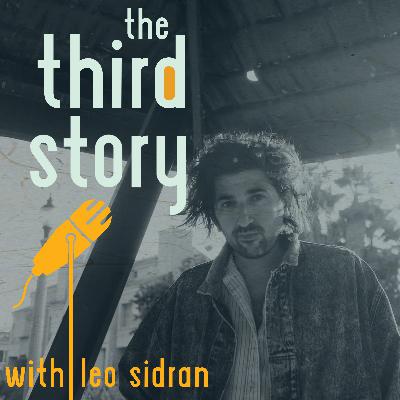
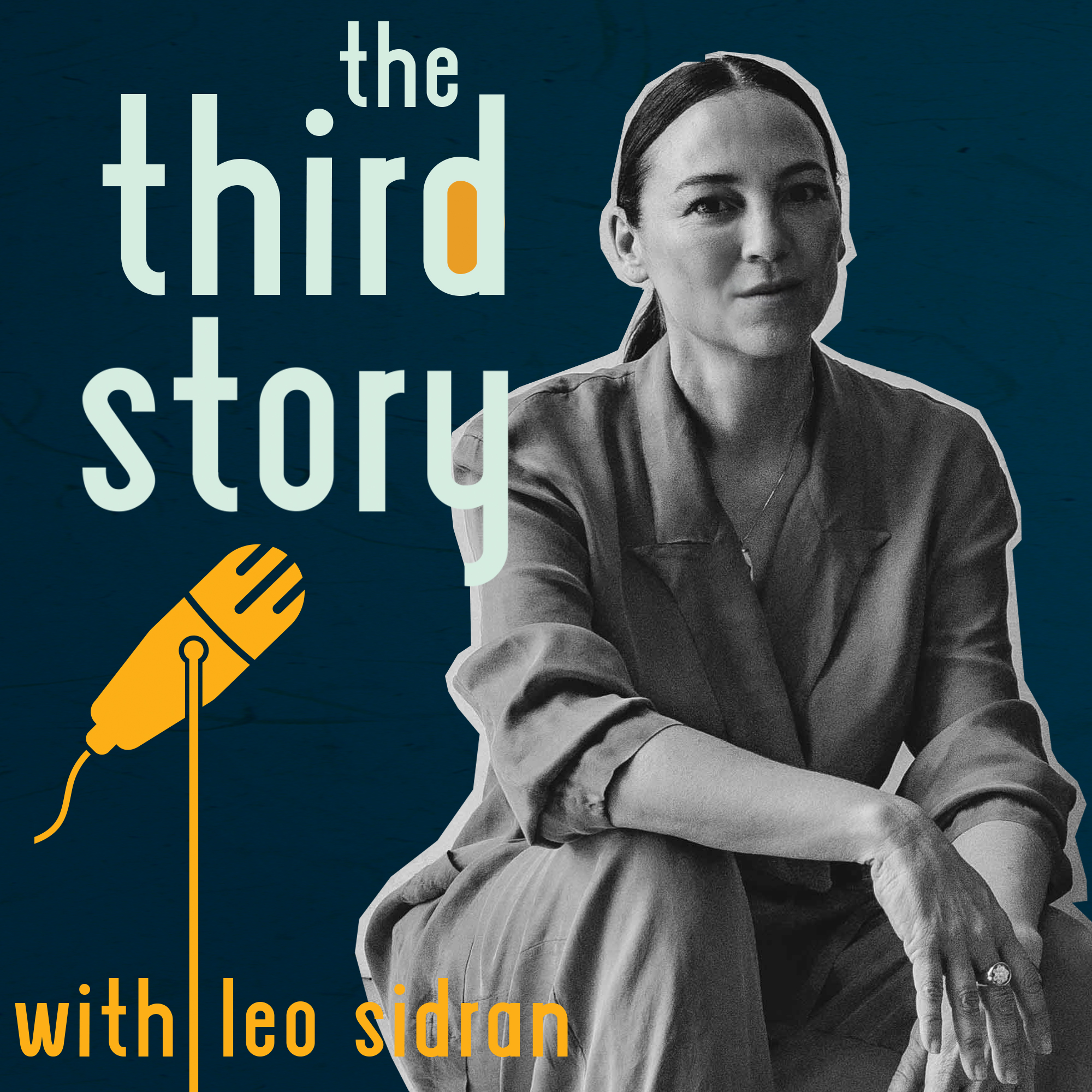
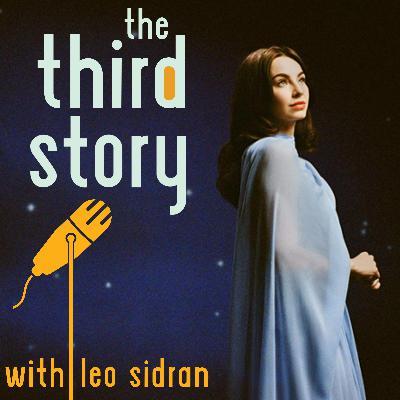
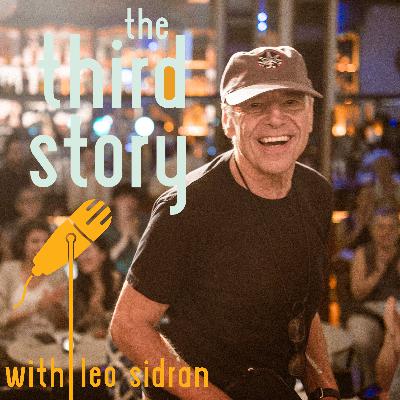
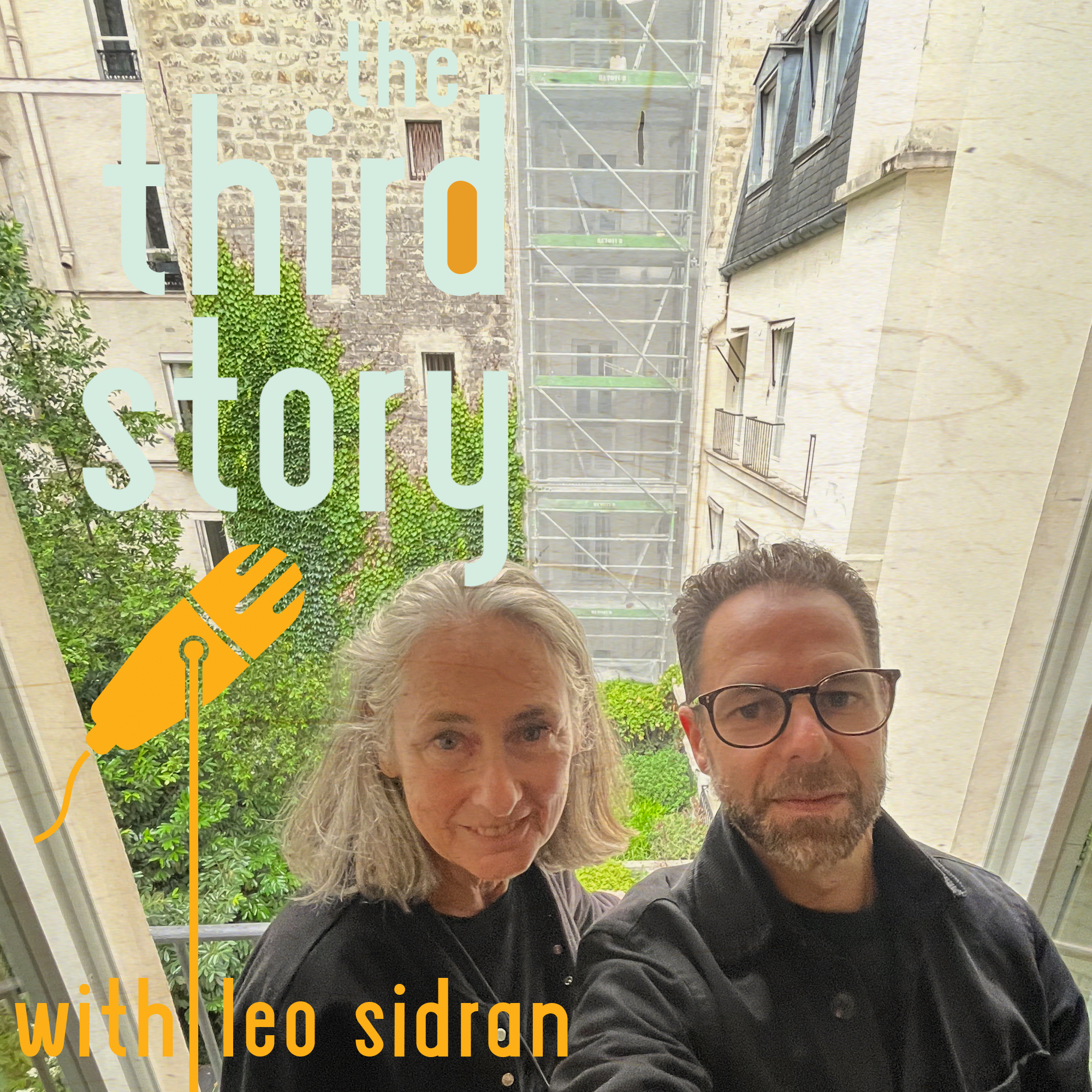
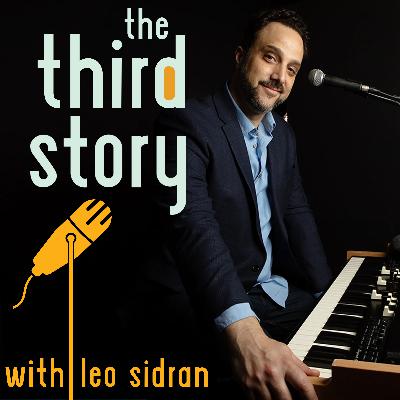
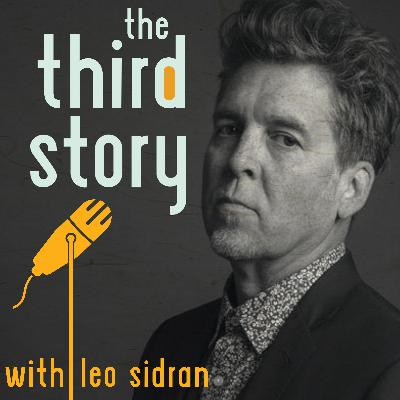
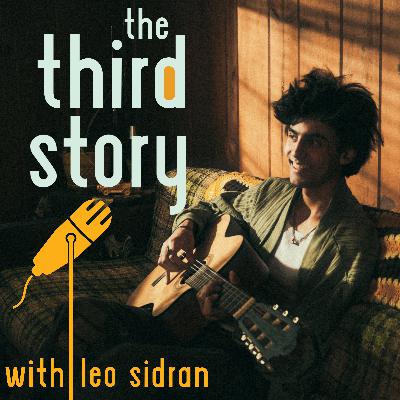
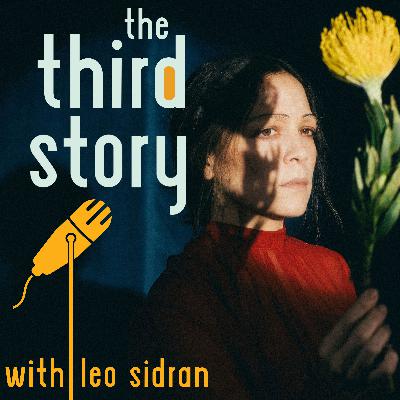
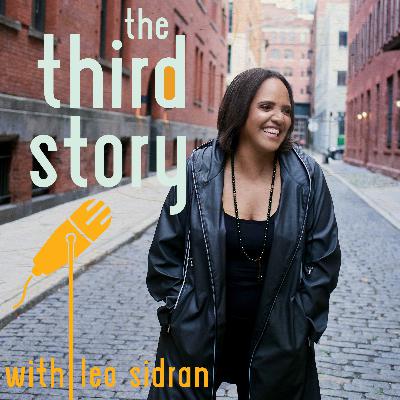
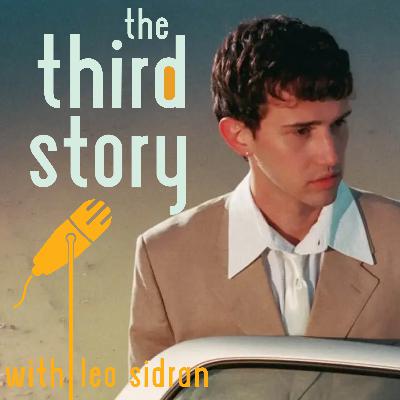

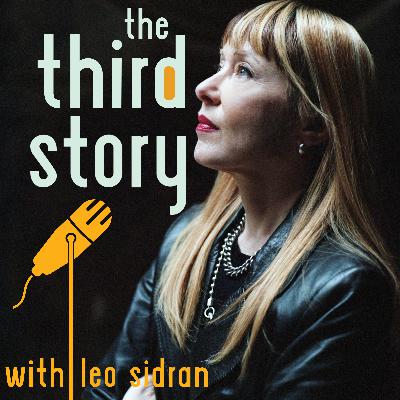
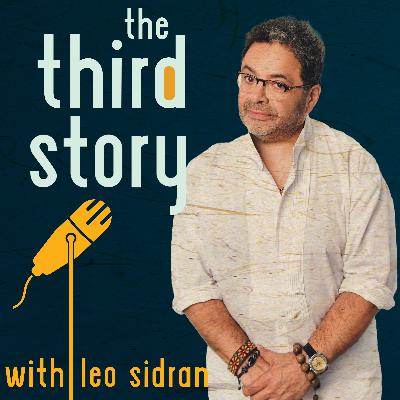
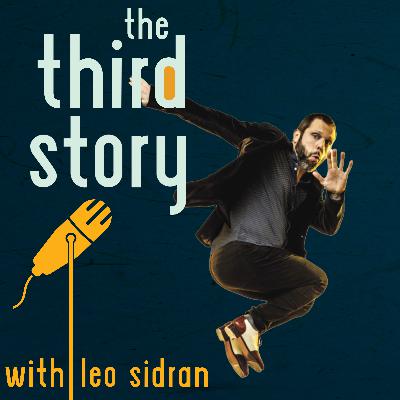
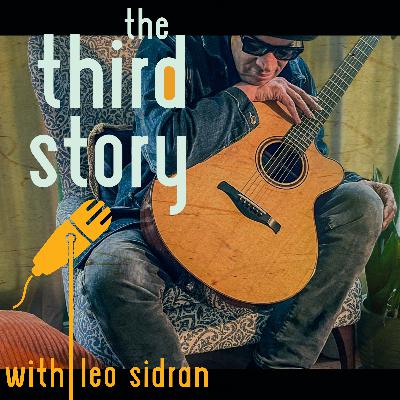
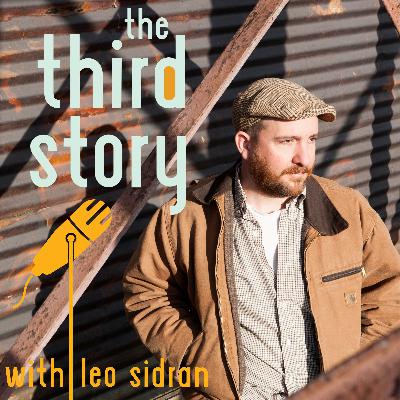
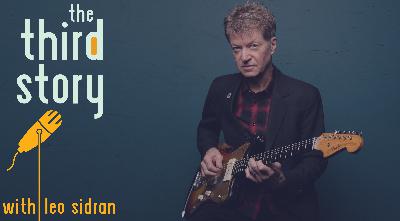
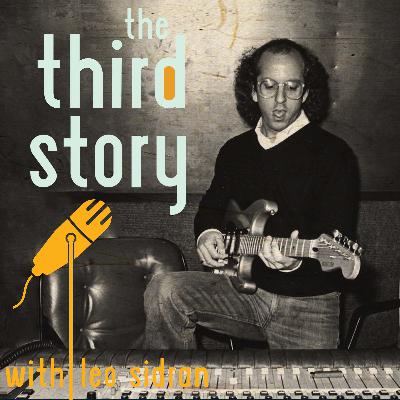
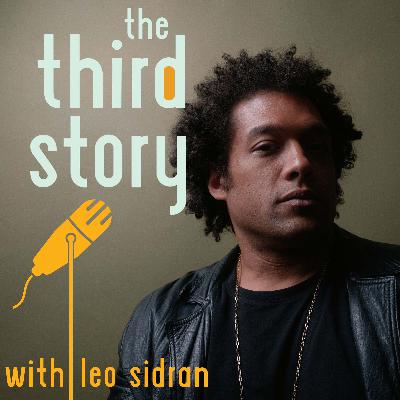



Thanks for these interviews. They give very much insight. Always admired League.